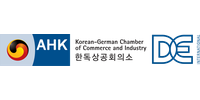KGCCI Intercultural Seminar: Yongo (연고) and beyond
Understanding affective ties and networks in management in Korea
- Learn the affective ties of Korean networks
- Achieve performance at managing business through understanding yongo and beyond
For managers not familiar with the Korean business environment managing employee, customer, supplier and other stakeholder relationships can be a new and challenging experience. While managers tend to overemphasize formal agreements to manage relationships in business and often feel more comfortable drawing a clear line between business and private affairs, underestimating its informal side can have negative effects on business success. Managers with operational tasks to perform at both ends, i.e. locally and towards the foreign headquarter, need to develop cross-cultural agility by understanding the relational-affective dimension of management in Korea. Learning conventional, sometimes stereotypical Korean cultural facets like collectivism, group culture and harmony alone is not enough and can be misleading.
While every expatriate manager knows the central importance of developing and maintaining guanxi (i.e. informal relationships and networks) in China, the characteristics and structures of affective ties and networks in Korea, called yongo or inmaek, remain largely unknown, underestimated or misunderstood by many expatriate managers. Developing cross-cultural competence through a understanding of yongo and affective ties in general is pivotal for successfully managing business in Korea. Yongo can be an influential factor in day-to-day operations in the area of leadership and human resources management (recruitment, selection, promotion), in sales, project acquisition and business development or any functions relating to customer relationship management at large. Understanding yongo and related constructs helps to better manage risks and opportunities in business, including those difficult to formally enforce.
- Date: Tuesday, 22. February 2022
- Time: 09:00-12:00 KST
- Format: Online, via Teams
- Target Group: Expats and Germans who live in Korea
- Language: English
- Lecturer: Prof. Sven Horak, St. John's University, New York
- Participation fee: 250,000 KRW + VAT
Objectives and subjects covered
This seminar enables participants to develop cross-cultural agility by understanding the relational-affective dimension of management in Korea. Acquired competencies will support managers to get a better grasp for rational decision making in a local context, thus increase the overall judgement capability, efficiency and effectiveness. The seminar will feature interactive group discussions, insights into the latest research on managing informal networks, on yongo in Korean management and beyond. Skills and knowledge acquired in this seminar can be directly utilized in practice.
Major subjects to be covered are:
- Managing informally in Korea and around the world – Yongo, guanxi, wasta, blat/svyazi
- Affective ties and networks in Korean business and politics: Yongo, inmaek and yonjul
- Yongo: network structures and characteristics
- Yongo and ethical issues, opportunities and risks
- Utilizing yongo in business and beyond
- Strategic options to informal networking in Korea
- Developing and maintaining yongo for non-Koreans
- Outlook: Is yongo persistent or does its influence decline?
Lecturer: Prof. Sven Horak, St. John's University, New York
Dr. Sven Horak is an Associate Professor at The Peter J. Tobin College of Business at St. John's University in New York City and faculty member of Yonsei University's International Summer School (YISS) in Seoul. Before assuming his current position, he was a post-doctoral fellow of the German Research Foundation (DFG) Research Group on 'Risk and East Asia' at the Institute of East Asian Studies (IN-EAST), University of Duisburg-Essen in Germany. He has been managing the automotive electronics business for Robert Bosch GmbH in Germany, Japan and South Korea, where he was in charge of strategic business planning and key account management. He has been leading and participating in consulting and research projects for the European Commission and other public and private institutions. His works appeared in renowned international business and management journals. He is a member of the American Council on Germany (New York) and since 2016 a member of the New Leader program of the Carnegie Council for Ethics in International Affairs, a New York City based think tank.


